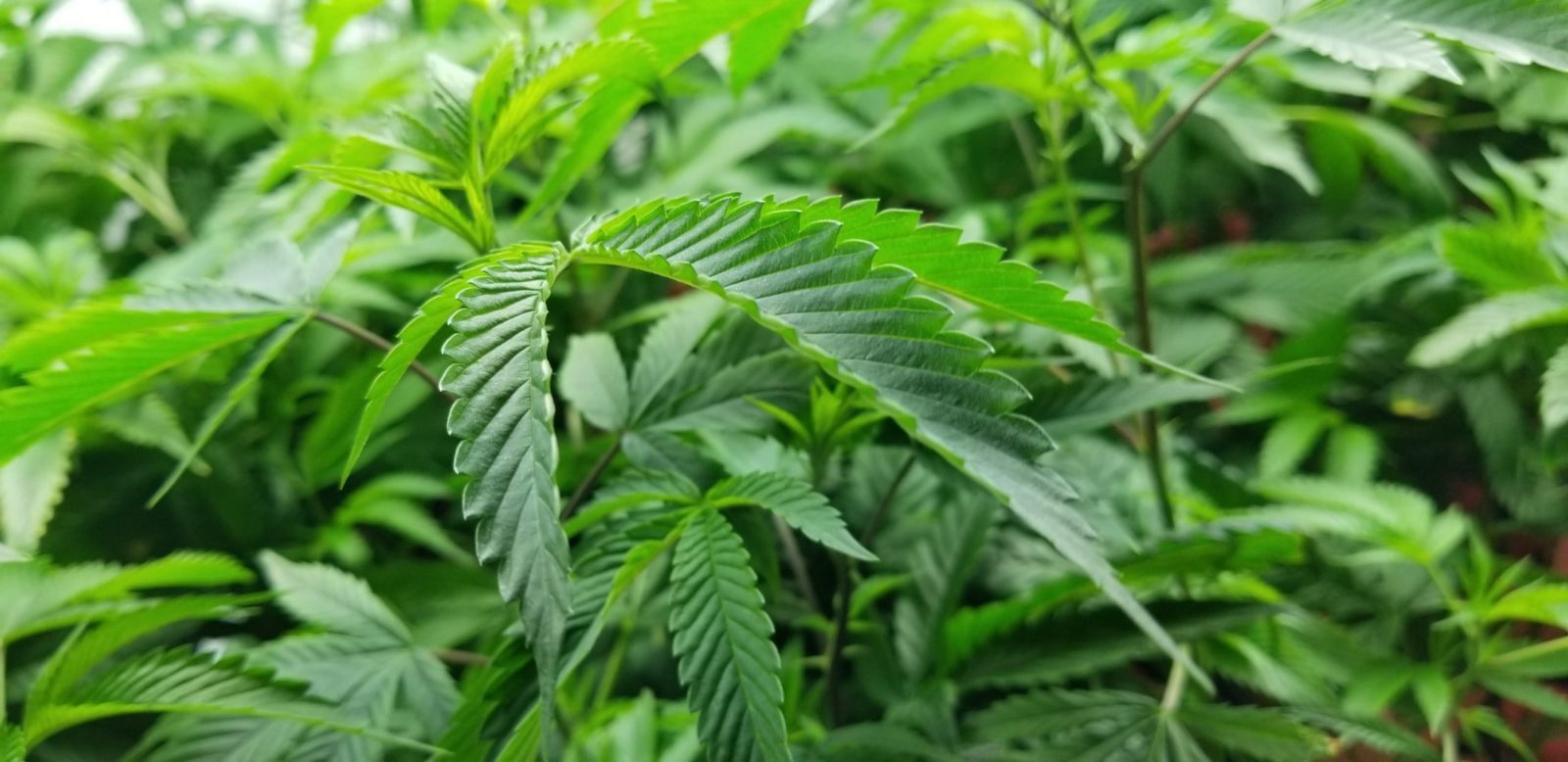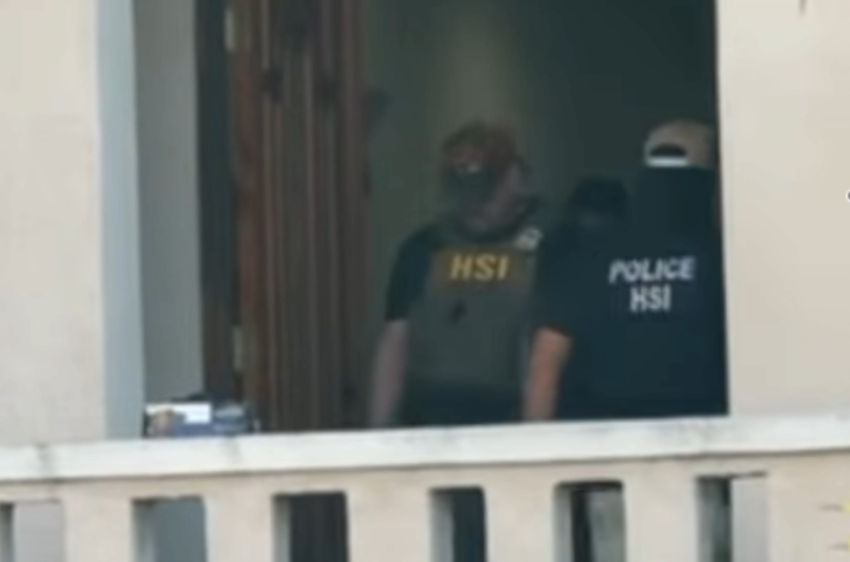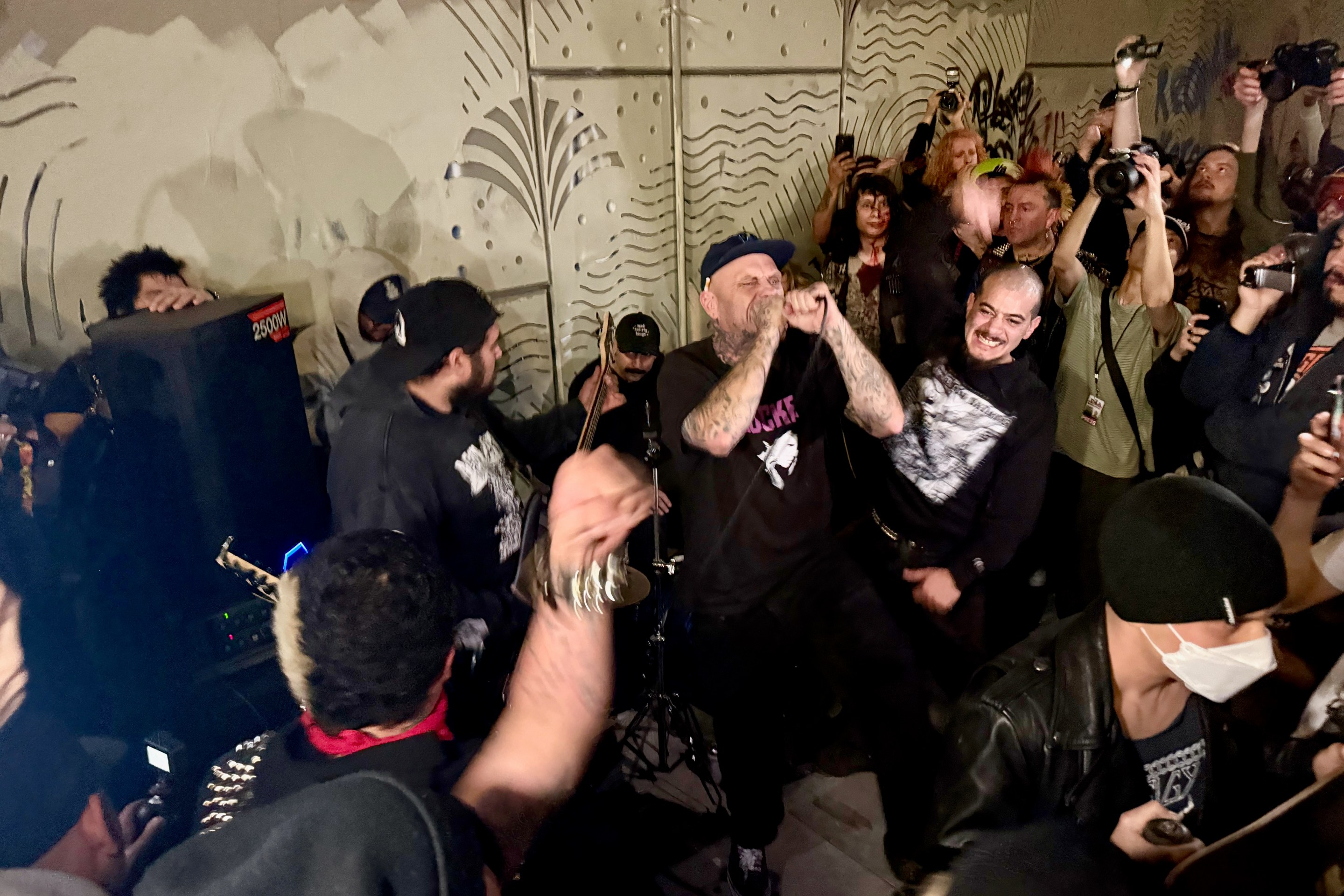[dropcap size=big]C[/dropcap]alifornia legalized weed four years ago, but thousands of people—the vast majority of them people of color—are still being arrested for possessing, consuming, and selling cannabis unlawfully. As of mid-October, over 75 percent of the people that the Los Angeles Police Department arrested for cannabis-related offenses were Black or Latino, according to LAPD records obtained by L.A. Taco. More Black people have been arrested for cannabis this year as of October than all of last year.
Over the summer, Crosstown and Filter Mag reported that over 600 people were arrested for cannabis last year based on data from an L.A. City-run database that tracks cannabis arrests dating back to 2010. L.A. Taco found through a public records request, however, that hundreds of more people have been arrested for cannabis since 2019.
The Numbers
Despite representing less than 10 percent of the city, over 400 Black people were arrested for cannabis last year, or 26 percent of all cannabis arrests that year. As of October 9, 2020, over 430 Blacks have been arrested for cannabis, or 35 percent of all cannabis arrests in the city this year—a 12 percent increase from 2019.
In 2019, over 1500 people were arrested for cannabis-related crimes, 54 percent were Latino. This year, over 425 Latinos have been arrested for cannabis or 38 percent of all arrests, a 20 percent decrease from the previous year. Roughly half the population in Los Angeles identifies as Latino or Hispanic.
On the other hand, Whites accounted for just 10 percent of cannabis arrest in 2019 and less than 13 percent of arrests so far in 2020. Only 138 people that identify as White have been arrested for cannabis this year, 24 fewer arrests than in 2019.
The data that L.A. Taco received shows that there were over 900 more arrests for cannabis in 2019 than what was previously reported.
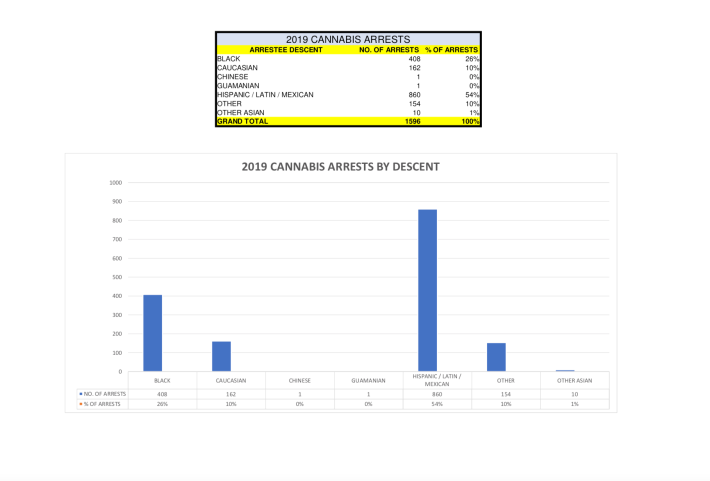
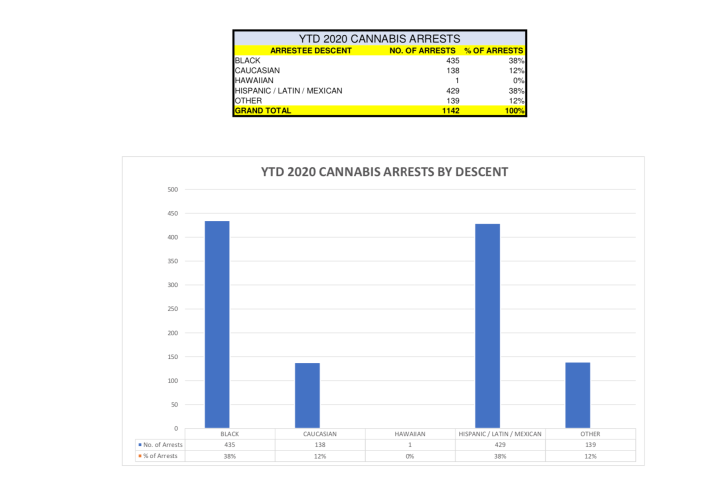
Why the discrepancy?
The L.A. City database that tracks cannabis arrests notes that because the data is “transcribed from original arrest reports that are typed on paper,” there may be “inaccuracies within the data.” Addresses, for example, are not exact. They’re rounded to the nearest hundred block. “This data is as accurate as the data in the database.”
LAPD spokesperson Josh Rubenstein forwarded L.A. Taco a response from the LAPD Gang and Narcotics Division regarding the discrepancy in the numbers that we received and other outlets reported on. The data that other outlets reported on did not take into account people that were arrested for LAMC 104.15—a local ordinance created under Measure M in 2017 that makes it “unlawful for a person to establish, operate, or participate as an employee, contractor, agent or volunteer, in any unlicensed Commercial Cannabis Activity in the City.”—because arrests for LAMC 104.15 are not included in the database.
LAMC 104.15 is the charge that the LAPD and city attorney’s office use to shut down unlicensed dispensaries. The ordinance was primarily designed to target unlawful business owners and landlords that rent out space to unlicensed dispensaries. But according to multiple public defenders that L.A. Taco interviewed, but do not want their names to appear in this story because of possible retribution at work, more often than not—security guards, budtenders, and other employees—get wrapped up in dispensary raids and charged with LAMC 104.15, rather than the actual business owner.
One public defender that L.A. Taco spoke to this summer told us that of the roughly six clients that they’ve represented in cannabis-related cases over the past year, all of them were “Black or Brown and employees.” Since 2019, the LAPD has shut down over 280 dispensaries, according to department records obtained by L.A. Taco. According to a representative with the LAPD Gang and Narcotics Division, arrests for LAMC 104.15 represent the “majority of cannabis-related arrests made by the Department.”
Black and Brown people were being arrested for cannabis disproportionately—that’s why we legalized cannabis in California. But today, more people—the majority of them people of color—are being arrested for cannabis in L.A. than when recreational cannabis was in a legal grey area, primarily because of an ordinance created as a result of legalization.
